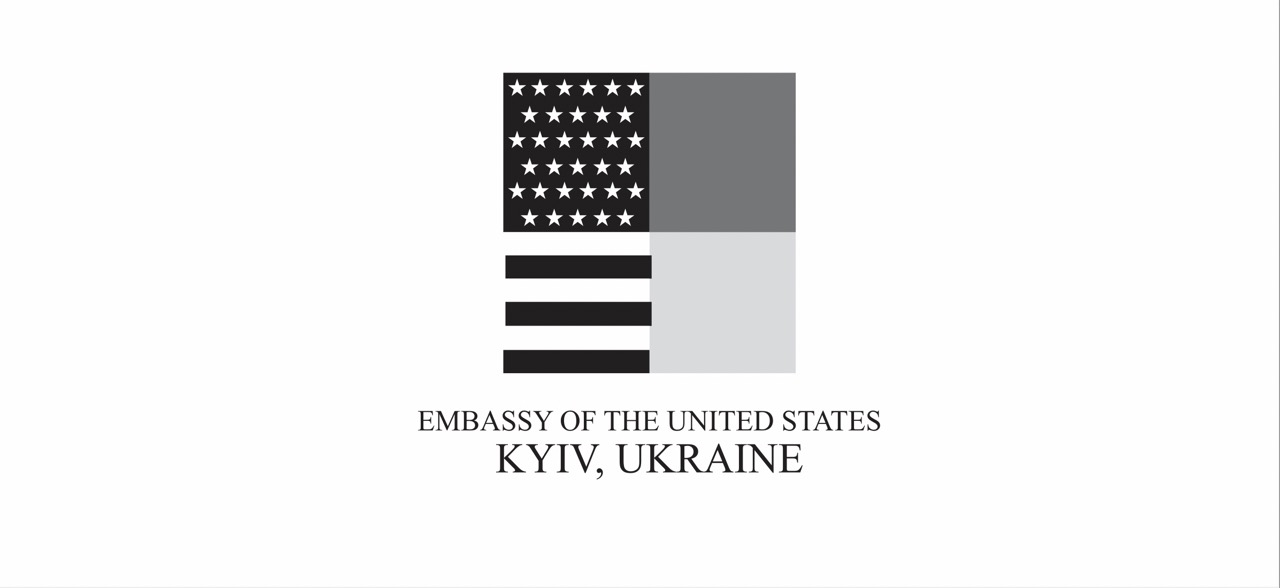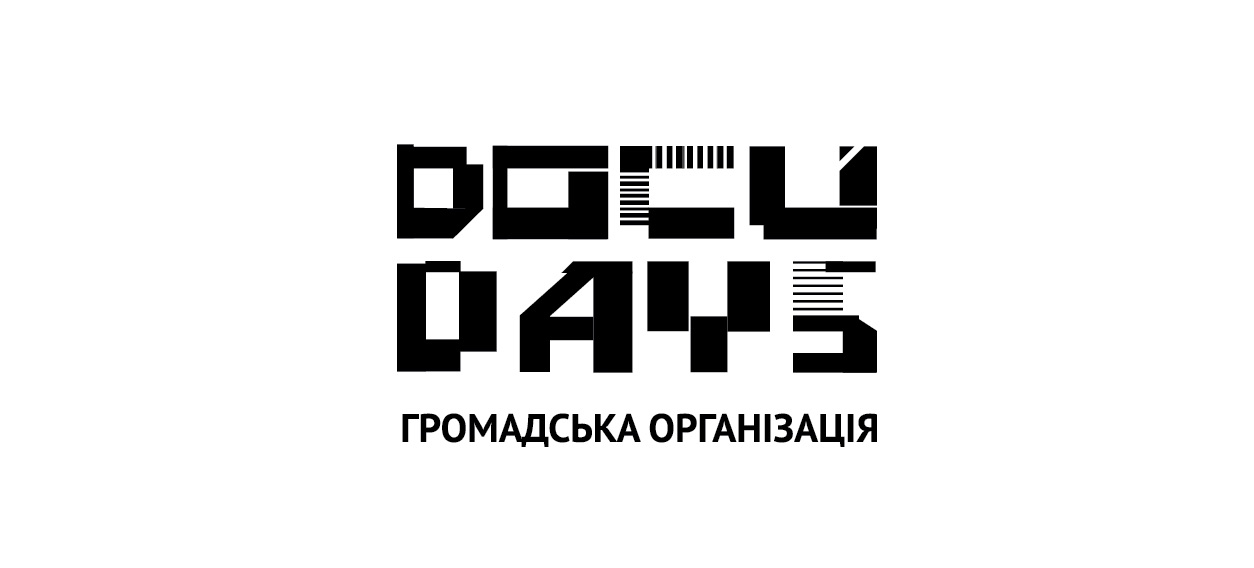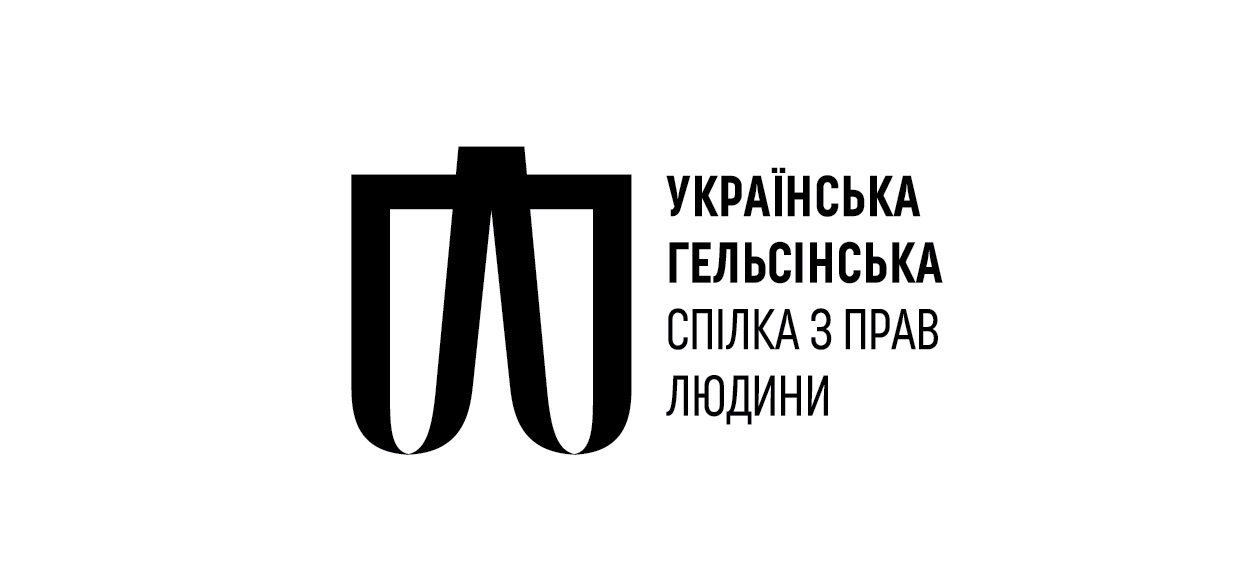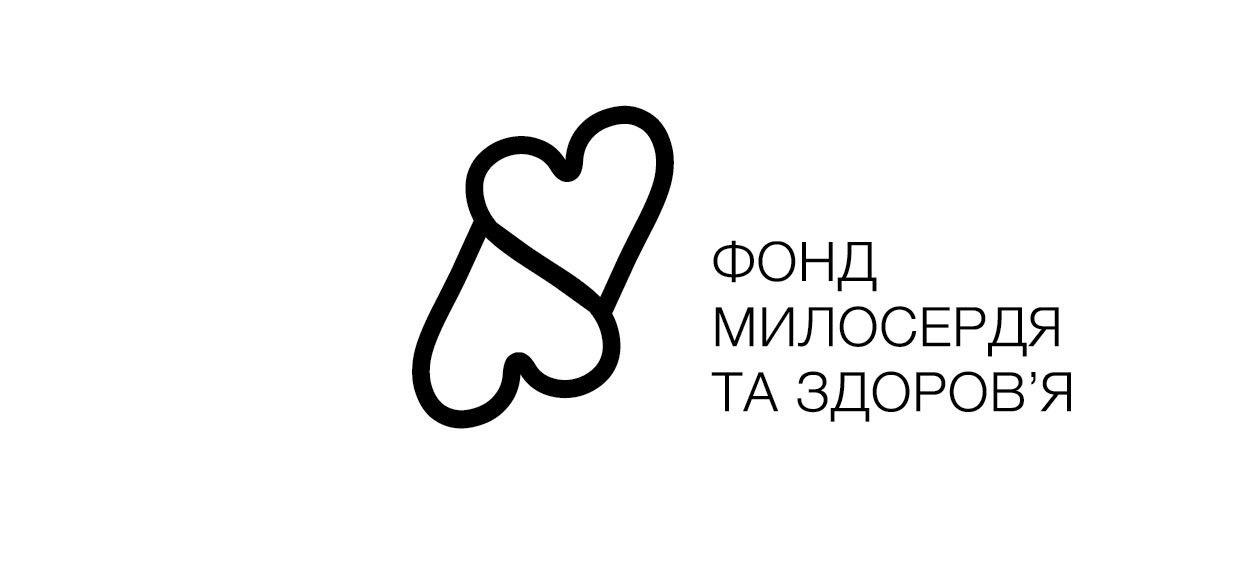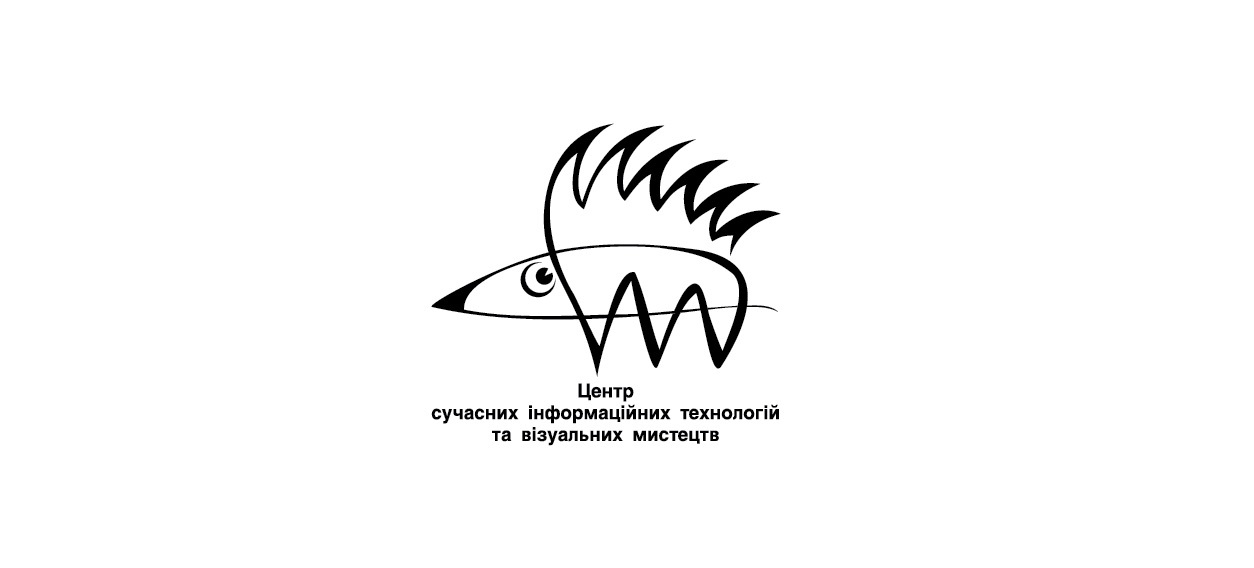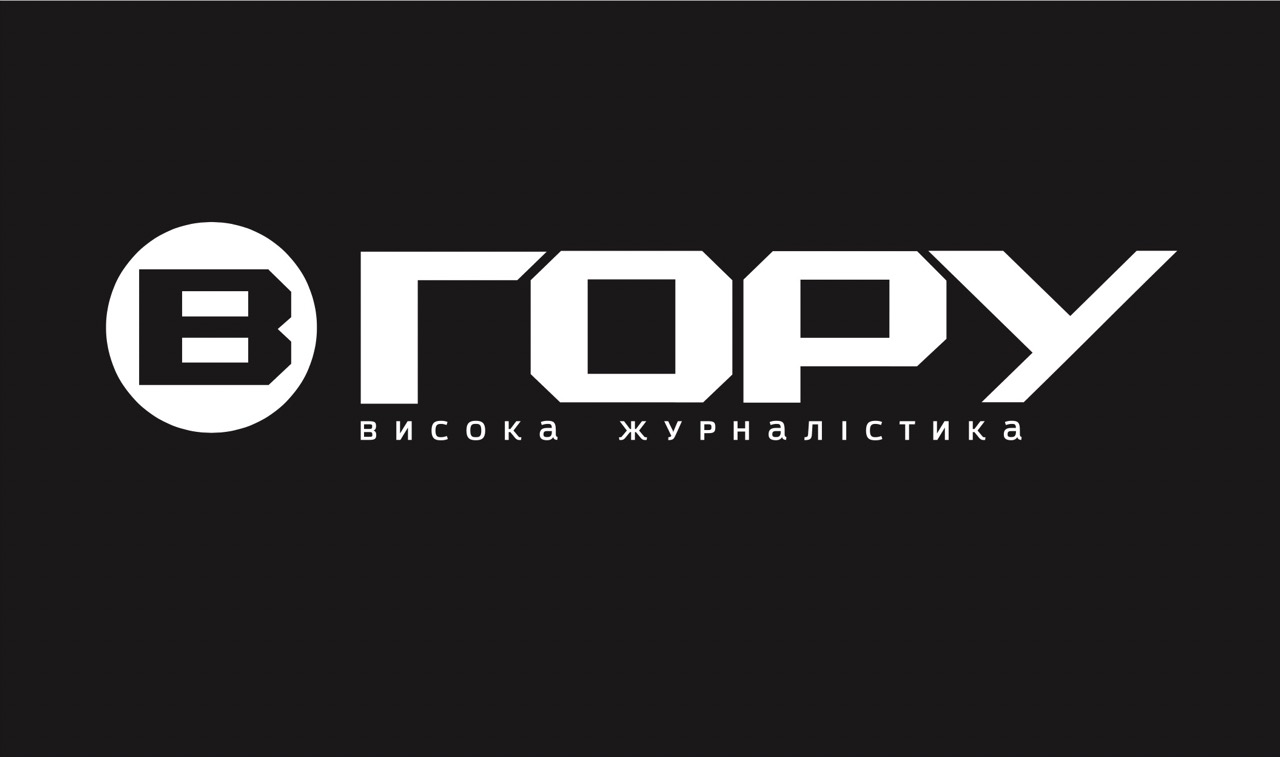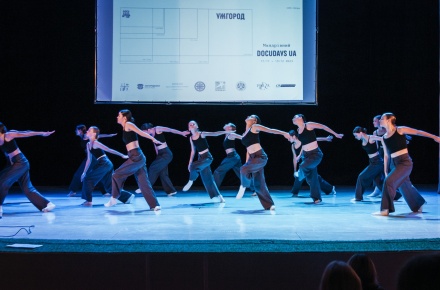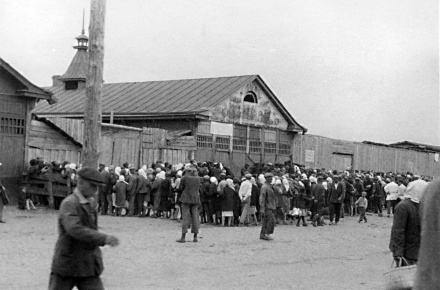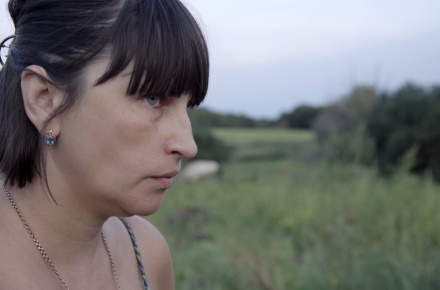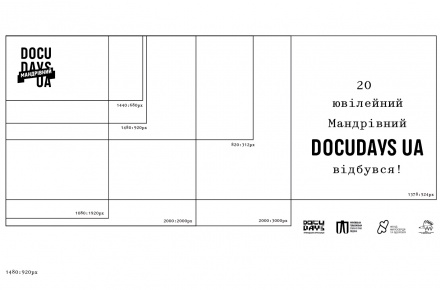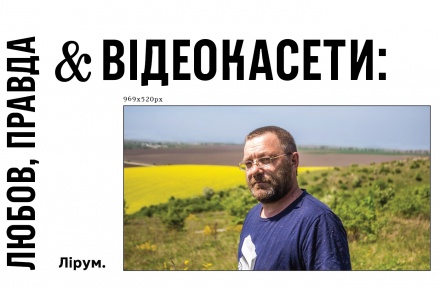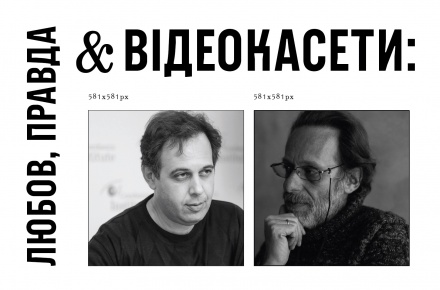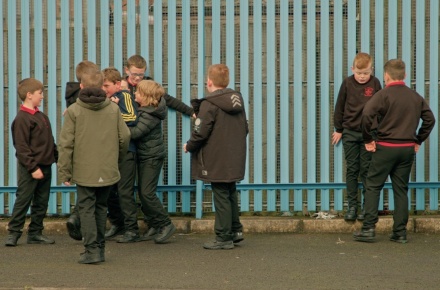Nina Khoma on Human Rights and the Magic of Documentary Cinema
Nina Khoma on Human Rights and the Magic of Documentary Cinema
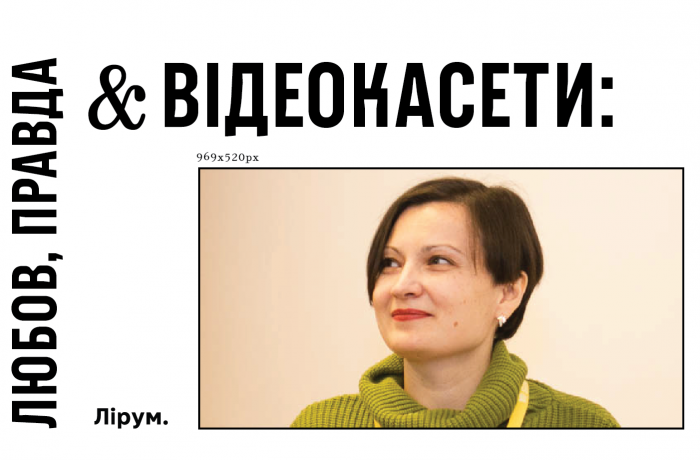
The20th Travelling Docudays UA is gaining momentum, and we’re continuing our series of interviews about the Festival’s history. This conversation features Nina Khoma, a human rights advocate, the Head of NGO Patronus, the Travelling Festival’s regional coordinator in Lviv, and a project manager for the DOCU/CLUB Network. Nina joined the Travelling Docudays UA back in 2007, when she was a student. Back then she worked at the office of the Ukrainian Helsinki Human Rights Union in Lviv, providing legal consultations.
Her first participation in the Days of Documentary Cinema festival (which was what Docudays UA was called back then) began with difficulties:
When we were holding our first screenings for students at one of Lviv’s universities, most of the people with whom we were trying to arrange partnerships didn’t understand yet what documentary cinema was and how to work with it. The films were, in their opinion, “too long,” and on DVDs. The location was poorly equipped in terms of multimedia, the department only had one projector, and we barely managed to secure it. Few students came. But those who did loved the documentaries and the opportunity to discuss them. Next time there were more viewers. The process was launched…
In her 16 years of organising the festival, Nina has created a warm and strong network of partnerships, thanks to which every Travelling Docudays UA in Lviv is a highly anticipated and exciting celebration for a broad audience, who discuss complex topics of human rights and achievements of justice.
The Travelling Festival is held once a year, and it’s a great celebration for me, which makes me enthusiastic, inspires and fulfils me. For me it’s an opportunity to step out of the usual rhythm of life and think about important, non-mundane things, and discuss issues of the modern world with many people. When I was just starting my work as a lawyer, I faced many difficult human problems and challenges. Sometimes I managed to win complex human rights cases in court, I collected human rights court victories of my lawyer colleagues, and at the festival we had a good platform to share these positive cases and inspire people to defend their rights.
Is it difficult to talk about human rights with new audiences?
We often encounter disbelief, many people think that human rights are just a theory without practical mechanisms of implementation. The more difficult the situation in the country is, the harder the conversation. So I always try to provide information supported by specific examples, especially regional ones, in order to demonstrate how one can implement human rights values in real life.
Courts are not abstract entities where everything is bought and sold. There are people who work there because it’s their calling. There are organisations that can provide very professional legal aid, even when it’s free of charge. During the festival, we distribute contacts of these human rights organisations or public free legal aid centres, we help people figure out certain legal problems and understand the mechanisms of defending human rights.
Could you provide examples of what people are the most willing to talk about in the context of human rights?
Not everyone immediately understands what human rights are. However, people can feel what’s wrong in their lives in particular, and these specific examples can help them better understand their legal nature and the ways to defend their rights. These can be issues, for example, about land disputes, conflicts in the family, between children at school. We explain these concepts: which of these are human rights and which are civil interests. First of all, we talk about education in human rights at the festival. Being aware means being armed. If you know how to defend yourself, you’re more capable and you can help yourself and your loved ones. We tell people how to interact in conflicts with government bodies, which organisations can provide free legal aid — mostly these are our partners from the Ukrainian Helsinki Human Rights Union and Free Legal Aid Centres.
In simple words, what are human rights?
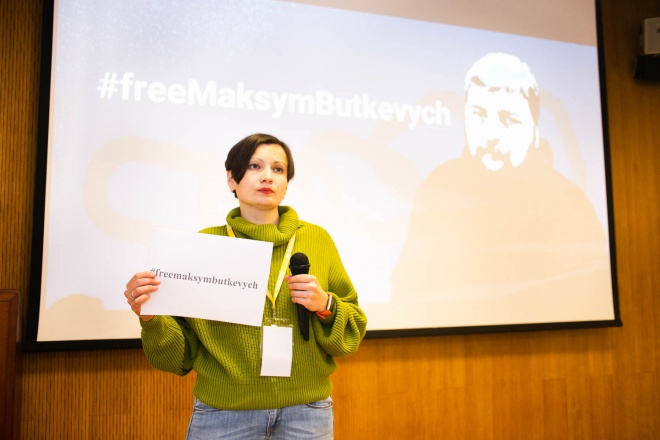
2022, archive of the Travelling Festival in Lviv Region: Nina is calling on the public to support our colleague Maksym Butkevych, who is still in russian captivity.
For me they are a kind of shield from injustice which protect our natural rights. A person has a range of rights from birth, and the state is obligated to protect them, even if certain officials don’t like that. It’s an interesting paradox: on the one hand, the state is the only body that can violate human rights, and on the other hand it is the guarantor that is obligated to protect these rights and help people realise them. We have been fighting for our rights for the entire history of humanity. In order to achieve our goal, we first must know these rights, understand them and be aware of their value.
Has the Travelling Festival affected your decisions in your main professional field in any way? Or your private life?
When I first came to a training seminar for coordinators in 2009, we met in Crimea, on the seashore. It was my first time there. I was anxious. But it gave me a lot of resources. I met some amazing people. One of those people later became my husband. We got married. He was an assistant coordinator from the Luhansk Region, and I was from the Lviv Region. The next years, we organised, and still organise, the festival in the Lviv Region together.
Did you organise the Travelling Festival in the Maidan years? How was it?
In 2013, my kid was five months old, and the events in the country hit me very hard. All of my friends were at the Maidan in Kyiv, and I couldn’t join them. I looked for ways to be useful in Lviv: I organised first aid masterclasses for school children, firearm training for high school students with the help of medics and soldiers who knew how to teach this professionally and taught it to others. Then our soldiers came to small meetings and told students about how they were defending our country in the ATO, it was very emotional. At the same time, at the festival we talked about Yevhen Konovalets, the founder of the Organisation of Ukrainian Nationalists (OUN) and the Ukrainian Military Organisation (UMO), a person with a statesman mindset — about how we was brought up from his early years to become such a charismatic leader. All the while, I had a baby in my hands, I carried her with me everywhere in a sling. Luckily, I had a reliable team with me, my friends took turns helping me. Then I saw in practice that the formula “fulfilled mother = happy child” is true.
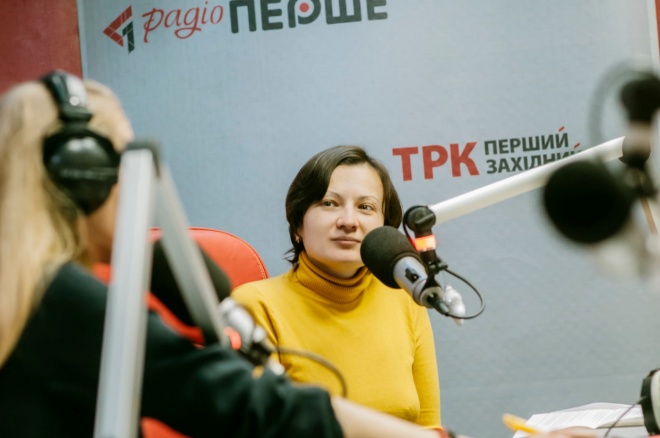
Photo from the archive of the Travelling Festival in Lviv Region
What personal challenges have you faced since 24 February 2022?
It’s been hard, but I’ve felt very supported by our daily Zoom meetings with the Docudays UA team. We realised that since we had access to a huge number of wonderful people from all over Ukraine, the first thing we should do is help one another.
Then we started to meet with other human rights organisations, and we decided to document what was happening in the country during the war. Together with our partners from the Centre for Civil Liberties, we restored the Euromaidan SOS. We gathered the first volunteers among our film club moderators from the DOCU/CLUB Network and regional coordinators of the Travelling Festival. When our colleagues started working on the Ukraine War Archive, I also joined the partnership department, we started to fill the Archive with testimonies and materials about the war. This project has a very important mission and plays an important role in recording memory and launching the mechanism of inevitability of punishment for international crimes.
Since October 2022, I’ve returned to the DOCU/CLUB project. After the beginning of the full-scale invasion, I kept asking myself if education, culture was even relevant during the war. But when our film clubs started resuming their work, we realised that people needed this, they come to events and want to watch relevant documentaries, talk, they want to support one another in this way. In October, we already understood that education was very important: it brings people together, supports them, complements volunteer initiatives and so on, so we resumed the Network’s work in full with wartime safety protocols.
Last year, when we had a meeting for Travelling Festival coordinators, we were asked if we even saw any point or opportunity to hold the festival. Our colleagues were happy that they were asked that, and they all unanimously volunteered to continue our work. Back then we didn’t understand how to do it yet, but we decided to try. And we did it. I was pleasantly surprised that the festival did take place and that so many people came to us, that they were inspired and active and thanked us a lot for the festival. It was something absolutely incredible. I think we’ll be able to do it in 2023 with equal success.
2022 changed the lives of each and every one of us, many members of the Travelling Festival audience joined the Armed Forces to defend Ukraine, many have lost their homes or the people they loved the most. But despite the tragedy of the full-scale war, you decided to organise the Travelling Festival. Why?
In 2022, when there were bombings and we cancelled one of the festival events, there was barely any internet connection. But we kept receiving texts, people kept asking when they could come to the event and where. I decided, “That’s it, how can we cancel it. We should go and do it. For these people, even if the screening is postponed, it must take place.”
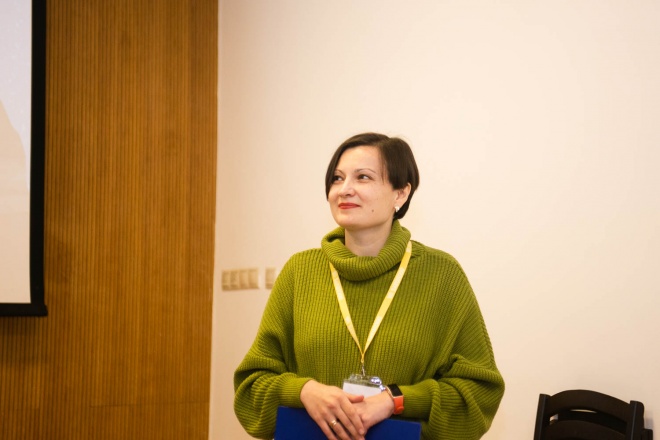
Photo from the archive of the Travelling Festival in Lviv Region
What is the power of documentary cinema?
Documentary films are not some kind of imagined stories or theories. They are very alive, real. During screenings, the audience sees a story about a real person “somewhere there,” and during discussions they learn about similar stories of specific people from their own city and/or country. This is the magic of restoring the faith in dialogue, in achieving justice.
In the short time frame of a screening, a film makes the problem more relevant than, say, a two-hour lecture or seminar. People can become more motivated and open to communication. We can hear their stories, which fascinate and move us. Viewers usually develop more empathy for the protagonists of the films and for one another.
Then, in 2014, film clubs were set up and there was even more magic. The DOCU/CLUB Network’s film library includes over 150 films from the previous festival years, and the Travelling Festival always receives new films. Film clubs are small-scale meetings with more focus on human rights education, while the Travelling Festival is as close to the format of the festival in Kyiv as possible, with grand openings, advertising, exclusive guests, screenings on big screens in unusual places, and discussions in big audiences. It is a celebration.
It is striking to me when people who attended the festival 3-4-5 years ago came and specifically described the details of a film they saw back then: its title, director, country. I couldn’t even recall some of the films. They thought about it in depth for many years. When they watched new films, they saw similarities. It’s so satisfying to see that films leave a deep impression and resonate in people’s hearts.
Sometimes viewers wrote letters to the protagonists. It is so striking when a child or an adult is deeply moved by what they see on the screen, when they realise that it’s not an imaginary story but real life. Some viewers have told stories about how they decided on their future profession through a protagonist’s story which they had seen in a film.
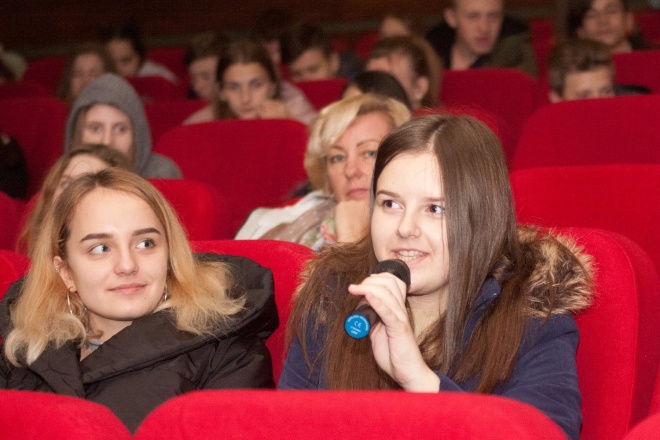
Viewers of the Travelling Docudays UA in Lviv Region, archive photo
How do you see the image of the Travelling Festival’s future?
For me, the Travelling Festival is a story of synergy, partnership, and of how you can organise an exciting event and communicate important meanings to audiences, inspire them for activism even with limited resources but with a well-coordinated team. How you can combine things that do not really seem to combine well at first sight. It is magic: bringing different active people together using cinema to enact social change in communities and in the country in general.
I dream about a dazzling joint opening of the Travelling Festival season for all regions in a peaceful country. It’s so cool when you see a person on the screen and then they come out to the audience and you learn their story after the film was made. This year, we’ve started to implement this idea more actively.
I’d also like to have more Ukrainian films. It’s always nice to see that we have great films that are included in the short and long lists for the Oscar award, which are featured at other international festivals. I want to boast about our films in particular.
I want our film clubs to become good locations for the Travelling Festival, and I want their audiences to come to the Travelling Festival as well. I want our partners to join forces with our moderators in every region and become a strong superteam.
In your opinion, what should we talk about in the near future?
I think that first of all we must prepare for the return of our defenders. Not the defenders themselves and their families, but we as a society must take care of this, we must stimulate the government to do everything to ensure proper rehabilitation and recovery for our fellow citizens. We need to initiate state and municipal programmes of support for people who have suffered from the war in Ukraine. We should also actively think about Ukraine’s rebuilding, continue to implement reforms. The issue of security guarantees for Ukraine from allied countries and alliances is also urgent and relevant.
So many people are traumatised: the people who return from the front, the families who are waiting for their heroes or heroines at home, the people who have lost their loved ones, their homes, who have experienced pain and difficulties of many kinds. And we as a society must be prepared for this to look for ways to support these people in dialogue. They should feel that they are always on the minds of people around them, those whom they know and strangers, and that these people are always prepared to help them.
Nina’s three favourite documentaries:
Last Men in Aleppo (dir. Feras Fayyad)
Bellingcat: Truth in a Post-Truth World (dir. Hans Pool)
The Cleaners (dir. Hans Block and Moritz Riesewieck)
The conversation was recorded by Ksenia Opria.
The 20th Travelling Docudays UA is supported by the Embassy of Sweden in Ukraine, the Embassy of Switzerland in Ukraine, and the US Embassy in Ukraine. Opinions, conclusions, or recommendations do not necessarily reflect the views of the governments, charities, or companies of these countries. The content of this publication is the sole responsibility of its authors.


